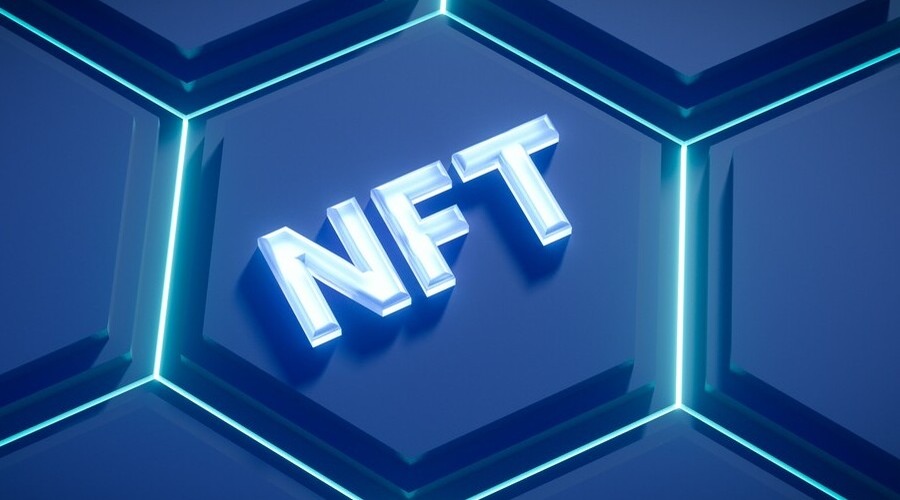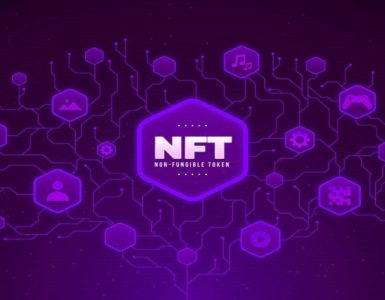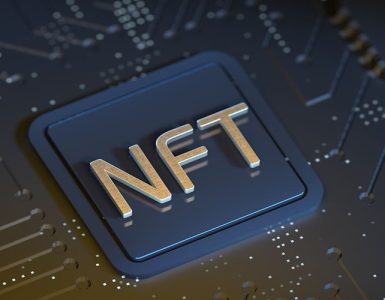As the digital landscape continues to evolve, Non-Fungible Tokens have emerged as a novel concept that enables the ownership and trading of unique digital assets on blockchain networks. Unlike cryptocurrencies such as Bitcoin or Ethereum, which are fungible, NFTs represent individual, non-interchangeable items. This unique feature has opened up a plethora of opportunities, sparking creativity and innovation across multiple sectors.
What are NFTs?
Non-Fungible Tokens are a type of digital asset that have gained tremendous popularity in recent years. Unlike cryptocurrencies such as Bitcoin or Ethereum, which are fungible and can be exchanged on a one-to-one basis, Non-Fungible Tokens are unique and indivisible. Each NFT represents a distinct item or piece of content, whether it be digital art, music, videos, virtual real estate, or even collectibles.
NFTs are built on blockchain technology, which ensures their authenticity, uniqueness, and ownership. The blockchain serves as a decentralized ledger that records and verifies the ownership and transaction history of each Non-Fungible Tokens. This immutable record provides transparency and trust, allowing creators and buyers to prove the originality and provenance of the digital asset.
What makes Non-Fungible Tokens particularly valuable is their ability to establish true ownership in the digital realm. Previously, digital content could be easily copied and shared without any sense of exclusivity or scarcity. Non-Fungible Tokens have changed that by introducing a mechanism to verify and authenticate digital assets, making them rare and collectible. This newfound concept of digital ownership has opened up exciting possibilities for artists, creators, and collectors to monetize and trade digital creations in ways that were not previously possible.
When someone purchases an NFT, they gain ownership rights over a specific digital item, granting them the ability to transfer, sell, or display it as they wish. Additionally, NFTs often come with smart contracts that allow creators to earn royalties each time their NFT is resold in the secondary market, providing ongoing benefits for the original creators.
NFTs have gained significant attention and value, attracting both mainstream interest and investment. They have sparked a wave of creativity, innovation, and new business models in various industries, blurring the lines between the physical and digital worlds. As the NFT ecosystem continues to evolve, it holds immense potential for artists, collectors, and enthusiasts to explore and redefine the concept of ownership in the digital age.
The Rise of NFTs
In recent years, Non-Fungible Tokens have experienced an unprecedented surge in popularity, transforming the digital landscape and capturing the attention of artists, collectors, and investors worldwide. NFTs have revolutionized the way we perceive and trade digital assets, introducing a new era of ownership, scarcity, and value in the digital realm.
NFTs are unique digital tokens that utilize blockchain technology to certify the authenticity and ownership of a specific asset. Unlike cryptocurrencies such as Bitcoin or Ethereum, which are interchangeable and have equal value, each NFT represents a distinct and one-of-a-kind item. This inherent uniqueness has given rise to a diverse range of applications and opportunities.
One of the primary driving factors behind the rise of Non-Fungible Tokens is the ability to prove ownership and establish scarcity in the digital world. Artists, who were previously constrained by the limitations of the physical art market, can now create and sell digital artwork directly to collectors. The concept of “digital ownership” has opened up a whole new avenue for artists to monetize their creations and reach a global audience.
Moreover, Non-Fungible Tokens have disrupted the traditional gaming industry by enabling players to own and trade in-game assets. Virtual items, once confined within game worlds, can now be bought, sold, and exchanged on various platforms. This has not only transformed the gaming experience but has also created new revenue streams for game developers and opportunities for players to participate in player-driven economies.
Furthermore, the music and entertainment industry has also witnessed the impact of Non-Fungible Tokens. Musicians and content creators can tokenize their work, allowing fans to own unique pieces of digital memorabilia. This direct connection between artists and their fans has the potential to reshape the dynamics of the industry, fostering deeper engagement and providing alternative revenue streams outside of traditional distribution models.
Current Impact of NFTs
Digital Art and Collectibles
NFTs have disrupted the art market, providing a platform for artists to sell their digital creations directly to collectors. This has democratized the art industry, allowing emerging artists to gain recognition and monetize their talent. Additionally, NFTs enable collectors to prove the authenticity and provenance of their digital assets, instilling trust in the market.
Gaming and Virtual Assets
NFTs have also made significant strides in the gaming industry, where they facilitate the ownership and trading of in-game assets. Players can now buy, sell, and exchange virtual items, enhancing their gaming experience and blurring the lines between virtual and physical economies. This has created new revenue streams for game developers and opened doors for player-driven economies.
Music and Entertainment Industry
NFTs are increasingly finding their way into the music and entertainment industry. Musicians and content creators can tokenize their work, allowing fans to own unique pieces of digital memorabilia. This direct connection between artists and fans has the potential to reshape the dynamics of the industry, creating new avenues for revenue generation.
Potential Challenges for NFTs
While NFTs hold immense promise, there are several challenges that need to be addressed for their sustainable growth and adoption.
- Scalability and Energy Consumption: As the popularity of Non-Fungible Tokens continues to grow, scalability becomes a crucial concern. Blockchain networks, such as Ethereum, face limitations in terms of transaction speed and energy consumption. Scaling solutions and the shift towards more environmentally friendly protocols are vital to ensure Non-Fungible Tokens can reach a broader audience.
- Copyright and Intellectual Property Issues: With the ease of creating and trading digital assets, copyright infringement and intellectual property disputes become prevalent. Establishing robust frameworks to protect creators’ rights and prevent unauthorized use of assets is crucial to maintain trust and foster innovation within the NFT ecosystem.
- Market Volatility and Speculation: The Non-Fungible Tokens market is currently experiencing high levels of volatility and speculation, which may deter mainstream adoption. Price fluctuations and the risk of asset devaluation pose challenges for both creators and investors. Implementing mechanisms to mitigate market manipulation and promote transparency is essential for long-term sustainability.
- Sustainability and Environmental Concerns: The energy consumption associated with blockchain networks, particularly proof-of-work protocols, has raised concerns regarding the environmental impact of NFTs. Transitioning towards more energy-efficient consensus mechanisms and promoting sustainable practices within the NFT ecosystem are crucial for addressing these concerns.
Regulation and Legal Frameworks
As NFTs continue to gain popularity, regulators and legal entities are grappling with how to approach this innovative technology. Establishing clear regulatory frameworks will be essential to ensure consumer protection, prevent fraud, and foster the growth of the NFT market in a secure and compliant manner.
Technological Innovations and Solutions
To overcome the challenges faced by NFTs, technological innovations are crucial. Layer 2 scaling solutions, interoperability protocols, and advancements in blockchain infrastructure are actively being explored to enhance the efficiency, accessibility, and sustainability of the NFT ecosystem.
Future Applications of NFTs
Looking ahead, the potential applications of NFTs are vast and varied.
Real Estate and Property Ownership

NFTs can revolutionize the real estate industry by simplifying property ownership, streamlining transactions, and enabling fractional ownership of high-value assets. This can unlock liquidity and provide opportunities for a wider range of investors.
Ticketing and Event Management
NFTs can transform the ticketing industry by eliminating counterfeit tickets and ensuring secure, verifiable ownership. Smart ticketing systems powered by NFTs can enhance attendee experiences and simplify event management.
Supply Chain and Authentication
By leveraging NFTs, supply chains can improve transparency and traceability. Brands can use NFTs to verify the authenticity and provenance of products, combating counterfeiting and ensuring consumer trust.
Conclusion
NFTs have already made a significant impact on various industries, revolutionizing how we perceive ownership and trade digital assets. However, challenges related to scalability, legal frameworks, sustainability, and market volatility need to be addressed for NFTs to reach their full potential. With ongoing technological advancements and regulatory developments, the future of NFTs looks promising, opening doors to exciting opportunities and innovative use cases.
FAQs
1. Are NFTs only applicable to digital art?
No, NFTs have applications beyond digital art. They can be used in gaming, music, collectibles, real estate, and many other industries.
2. Can NFTs be traded on multiple platforms?
Yes, depending on the blockchain network they are built on, NFTs can be traded on various platforms that support the respective standard.
3. How do NFTs benefit artists and creators?
NFTs provide artists and creators with new revenue streams, direct interaction with fans, and the ability to retain ownership and earn royalties from the secondary market sales.
4. Can NFT ownership be proven?
Yes, NFTs utilize blockchain technology to establish ownership and authenticity. The transaction history is publicly verifiable, ensuring proof of ownership.
5. Are NFTs a sustainable investment?
Investing in NFTs carries risks due to market volatility. It’s essential to conduct thorough research and understand the underlying value and demand before investing.





